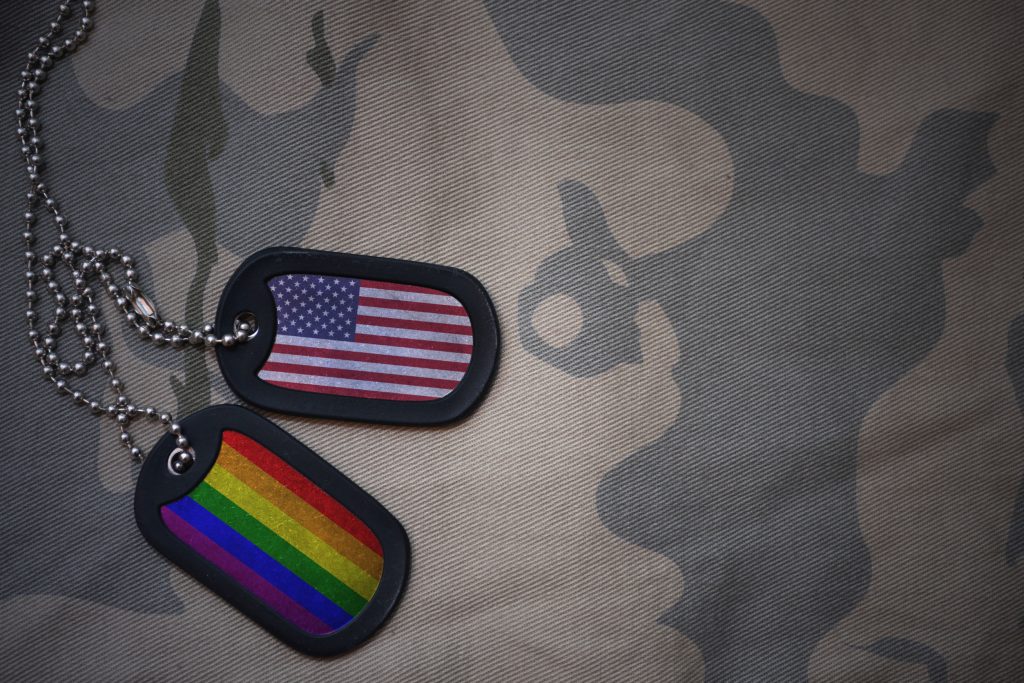
In June 2016, the Obama Administration released a guidance allowing transgender people to serve in the US military, and since then, the Pentagon has been discussing steps to open-up conscription to transgender people. But on July 26th, President Donald Trump indicated via Twitter his intention to reverse that course. His decision, which surprised the Joint Chiefs of Staff, has not yet been implemented. But in anticipation of the transgender ban, a number of trans-rights advocates have made it their objective to pursue legal action against the administration on behalf of transgender military personnel.
Trump’s Tweet
Why ban transgender people? According to Trump’s tweets, trans-identifying soldiers would burden the military “with the tremendous medical costs” and, more broadly, cause a “disruption.” He failed to specify what kind of disruption transgender people would cause, aside from the alleged rise in medical costs (a claim that has been debunked). He implied, too, that the presence of transgender people in the armed forces would deter the military from a “decisive and overwhelming victory,” a claim that lacks credibility.
Working With the Military
Though Trump tweeted he had consulted with top military officials, Defense Secretary James Mattis said he only found out one day prior to the President’s statement. In a press briefing, Press Secretary Sarah Huckabee said, “[…] the Department of Defense and the White House will have to work together as implementation takes place and is done so lawfully.”
Unofficial
As of right now, Trump’s announcement is just that: an announcement. It lacks the weight of an official memo. That’s at least what Pentagon spokesman, Capt. Jeff Davis, told ABC: “What we saw was what amounts to an announcement from the commander in chief.” He continued, “We are now in the process of waiting for that to be formally articulated to us in a policy memo. We’ll be standing by to make that happen.”
The Chairman of the Joint Chiefs of Staff, General Joseph Dunford, echoed Davis’ statement in a memo to army personnel: “There will be no modifications to the current policy until the President’s direction has been received by the Secretary of Defense and the Secretary has issued implementation guidance.” He added that the armed forces would “treat all of our personnel with respect.”
Constitutional Violations
Thus far, advocates have observed the constitutional implications of Trump’s Tweet. It would, they’ve said, undermine the Constitution’s promise of equal protection in the eyes of the law.
In a conversation with the National Law Journal, Jon Davidson, of Lambda Legal, highlighted some of the legal tactics that might be utilized in a lawsuit. He named three: attorneys could pursue action under the equal protection clause of the Fourteenth Amendment; they could make claims using the due process clause of the Fifth Amendment; or they could refer to the Administrative Procedure Act. The latter would be linked to claims that the administration’s ban is “arbitrary and capricious.”
The Type of Ban
At the moment, the administration’s precise plan is unknown. Trump expressed his wish to prevent transgender people from “serv[ing] in any capacity in the U.S. Military,” which could mean pulling trans-identifying soldiers out of the armed forces altogether. But it’s just as possible that Trump’s administration could refuse to allow transgender people to enlist. Either path would offer its own obstacles.
However, according to some, an all-out ban would be easier to contest since it’s difficult to show that transgender people would be a burden no matter what position they are filling. Jamal Greene of the TakeCareBlog outlined this point of view in a blog post. He also noted, “As the Supreme Court held more than two decades ago in Romer v. Evans, enacting government policy motivated by bare disgust towards a population of Americans is unconstitutional as a matter of first principles.”
Endnote
To close, it’s very important to note that fighting the potential military transgender ban is not the be-all-end-all for every queer activist. In fact, as pointed out by Sydney Roberts of Truthout, the history of queer advocacy involves solidarity with those who have suffered at the hands of the US military. As Roberts stated in their article, if the military refuses to ban transgender people, “this doesn’t mean that the armed forces are enlightened saviors or the lesser of two evils in our current political moment.”



Leave a Comment